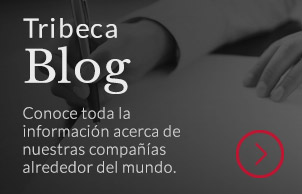Equity Deals Rebounding With I.P.O.’s
The megabuyouts have turned out to be anything but megabusts.
Many of the multibillion-dollar private equity deals struck during the buyout boom of 2006 and 2007 were seen as vulnerable during the recession as they tottered under the weight of their own debt.
Yet a flurry of developments on Thursday underscores just how much the private equity business has emerged from the financial crisis in a position of strength.
Kinder Morgan, an oil-and-gas pipeline company taken private in 2007, filed for an initial public offering to raise as much as $2.3 billion, which would be the largest buyout initial public offering on record. Its private equity owners, Goldman Sachs and the Carlyle Group among them, stand to earn billions of dollars in profits.
Another private equity titan, the Blackstone Group, posted its best quarterly earnings in nearly four years and said that its core business of buying companies — for which it has $16.5 billion of “dry powder” or uninvested cash — was on the upswing.
And another bought-out company, Neiman Marcus, the luxury retailer whose results plummeted during the recession, reported strong sales numbers and is contemplating its own initial public offering less than four years after being taken private by Warburg Pincus and TPG.
“While the lows of 2008 are not far from most private equity professionals’ minds, we’re seeing increased confidence in the marketplace,” said Shawn E. Atkinson, a lawyer at Edwards Angell Palmer & Dodge who focuses on private equity transactions. “More importantly, most of our clients have seen considerable increases in the value of their portfolios.”
To be sure, many of the large companies acquired during the buyout boom continue to struggle, and their owners, which paid dearly for them, may never see profits from these investments.
Among the challenged megadeals are the First Data Corporation, the payment processor; Harrah’s Entertainment, the gambling company; and Energy Future Holdings, formerly TXU, the large Texas utility.
But even those companies have been bolstered by a rip-roaring market in corporate debt. The bond market rally has allowed these companies to refinance their debt, extending maturities on their loans and improving the health of their overleveraged balance sheets.
One deal that has not required any shoring up is Kinder Morgan, the pipeline company taken private in a deal that closed in 2007 for about $22 billion. The buyers were the company’s founder, Richard Kinder, along with a group of private equity firms comprised of Goldman Sachs, the American International Group, Carlyle and Riverstone Holdings.
Mr. Kinder and his top management contributed about $3 billion in equity to the deal and the buyout group put up about $5 billion. To finance the rest of the transaction, the private investors doubled Kinder Morgan’s debt load to about $14 billion, leaving it with little room for error.
Yet since 2007, Kinder Morgan, based in Houston, has benefited from, among other things, the boom in natural-gas exploration and development in the United States. There has been a sharp increase in demand for new pipelines in enormous shale deposits in Pennsylvania and Texas, where energy companies are drilling for natural gas.
Indeed on Thursday, Kinder Morgan announced that one of its joint ventures had struck a deal to provide natural gas gathering and transportation to a unit of Anadarko Petroleum in the Eagle Ford Shale region in Texas.
Mr. Kinder, who will still own 31 percent of the company after its planned initial public offering, is an alumnus of Enron. He left the energy company in 1996 after being passed over for chief executive. On the way out the door, he bought about $40 million in pipeline assets from Enron.
Today, Kinder Morgan operates about 37,000 miles of pipelines, and Mr. Kinder, 66, is worth an estimated $5.2 billion, according to Forbes magazine.
Mr. Kinder is not selling any shares in the planned initial public offering, according to Thursday’s filing, but the buyout firms are partly cashing out. At Kinder Morgan’s expected valuation when it begins trading as a public company, Goldman, Carlyle and the other owners will have paper profits of roughly three times their original investments.
Kinder Morgan’s initial public offering comes as a parade of buyout-owned companies are either selling shares to the public or lining up to do so. In some cases, like the Kinder Morgan deal, they are exiting a portion of their stakes. In other cases, they are raising money to pay down the large amounts of debt they put on the companies when taking them private.
Last month, Nielsen Holdings, the media company owned by a group of private equity firms since 2006, raised about $1.5 billion to pay down debt. The Nielsen offering has paved the way for other large private equity owned businesses to go public.
The giant in the pipeline is HCA, the country’s largest hospital chain.
In the last 250 days, three dozen private equity-backed companies have filed to go public, collectively hoping to raise $14 billion, according to Dealogic.
The environment has turned so rosy for private equity firms that even buyout-backed companies that went bust during the crisis have found a second life — and big profits — in the hands of new owners.
Consider Aleris International, an aluminum producer acquired by private equity firm TPG for $3.3 billion in 2006. After Aleris filed for Chapter 11 bankruptcy in 2009 subsequent to a collapse in commodity prices, three private equity firms, including Apollo Global Management acquired Aleris out of bankruptcy, wiping out $2.7 billion in debt.
Less than a year after emerging from bankruptcy, Aleris is now readying a $500 million debt offering that it will use to pay its owners a $300 million dividend.



